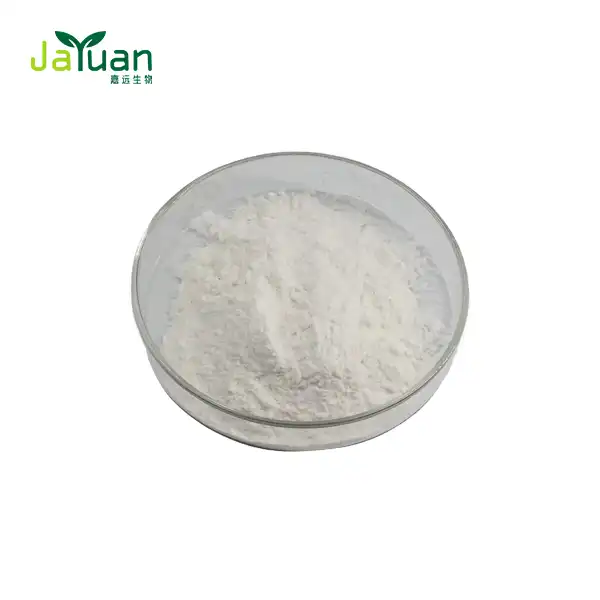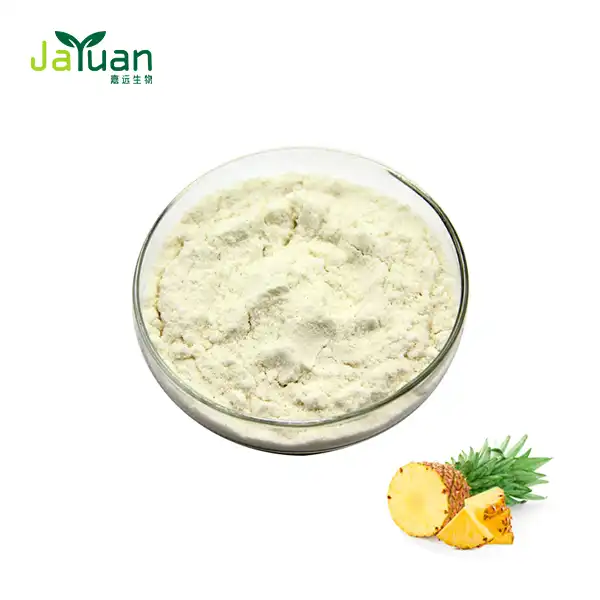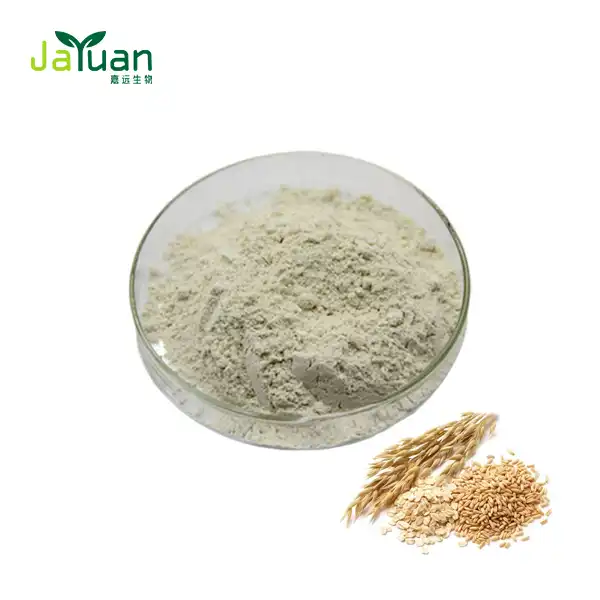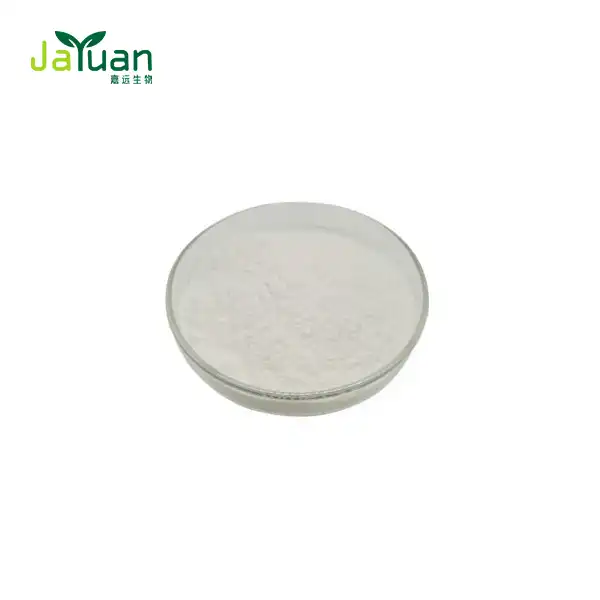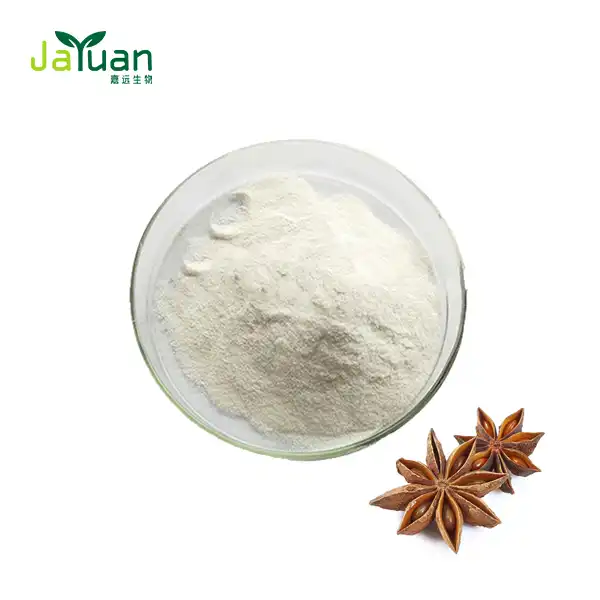What are the benefits of Fructooligosaccharides powder to intestinal flora?
Fructooligosaccharides (FOS) powder has gained significant attention in recent years for its potential benefits to gut health. As a prebiotic fiber, FOS plays a crucial role in supporting the growth and activity of beneficial bacteria in our intestines. In this article, we'll explore the various ways fructooligosaccharides powder can positively impact your intestinal flora and overall digestive wellness.

How does Fructooligosaccharides powder feed good gut bacteria?
Fructooligosaccharides are a type of soluble fiber that acts as a food source for beneficial bacteria in our gut. Unlike other carbohydrates that are broken down and absorbed in the small intestine, FOS remains intact until it reaches the large intestine. This unique property allows it to serve as a prebiotic, nourishing the good bacteria that reside in our colon.
The fermentation process
When organic fructooligosaccharide powder reaches the large intestine, it undergoes fermentation by the resident bacteria. This process produces short-chain fatty acids (SCFAs) such as acetate, propionate, and butyrate. These SCFAs have numerous benefits for gut health, including:
- Providing energy for colon cells
- Reducing inflammation in the gut
- Improving mineral absorption
- Regulating pH levels in the colon
Selective stimulation of beneficial bacteria
One of the key advantages of FOS is its ability to selectively stimulate the growth of beneficial bacteria, particularly Bifidobacteria and Lactobacilli. These good bacteria play essential roles in maintaining a healthy gut environment by:
- Producing vitamins and enzymes
- Enhancing immune function
- Competing with harmful bacteria for resources
- Maintaining the integrity of the gut lining
By providing a food source specifically for these beneficial bacteria, FOS helps to create a more balanced and diverse gut microbiome.
FOS powder and Bifidobacteria growth: What studies show
Numerous studies have investigated the effects of fructooligosaccharides powder on the growth of Bifidobacteria and other beneficial gut bacteria. Let's take a closer look at some of the key findings:
Human clinical trials
Several human studies have demonstrated the positive impact of FOS on Bifidobacteria populations:
- A randomized, double-blind, placebo-controlled study published in the British Journal of Nutrition found that daily consumption of 2.5g of FOS significantly increased Bifidobacteria counts in healthy adults after just two weeks.
- Another study in the Journal of Nutrition showed that FOS supplementation (15g/day) for 15 days led to a substantial increase in Bifidobacteria numbers, accompanied by a decrease in potentially harmful bacteria like Clostridia.
- Research published in Applied and Environmental Microbiology reported that FOS consumption (10g/day) for 10 days resulted in a 10-fold increase in fecal Bifidobacteria counts.
In vitro studies
Laboratory studies have also provided valuable insights into the mechanisms by which FOS promotes Bifidobacteria growth:
- An in vitro study published in FEMS Microbiology Ecology demonstrated that FOS was preferentially utilized by Bifidobacteria species compared to other gut bacteria, explaining its bifidogenic effect.
- Research in the Journal of Applied Microbiology showed that FOS stimulated the growth of various Bifidobacteria strains, including B. longum, B. bifidum, and B. adolescentis.
Long-term effects
While short-term studies have shown promising results, researchers have also investigated the long-term impact of FOS supplementation:
- A 12-month study published in Nutrition Journal found that daily consumption of FOS (8g/day) maintained elevated levels of Bifidobacteria throughout the study period, suggesting sustained benefits with continuous use.
- Another long-term study in the European Journal of Clinical Nutrition reported that FOS supplementation (5g/day) for 6 months not only increased Bifidobacteria counts but also improved various markers of gut health and immune function.
These studies collectively demonstrate the potent bifidogenic effect of fructooligosaccharides powder, highlighting its potential as a valuable prebiotic supplement for promoting gut health.
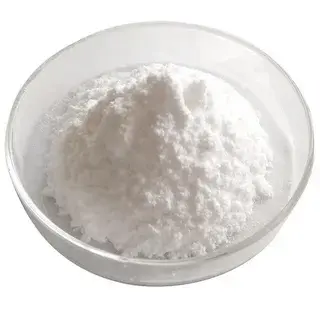
Best probiotic combinations with FOS powder for gut health
While FOS powder alone can provide significant benefits to gut health, combining it with specific probiotic strains can potentially enhance its effects. Here are some of the most promising probiotic combinations to consider:
Bifidobacterium and FOS synergy
Given the strong bifidogenic effect of FOS, combining it with Bifidobacterium strains can create a powerful synergistic effect:
- Bifidobacterium longum: This strain has been shown to work well with FOS, improving gut barrier function and reducing inflammation.
- Bifidobacterium bifidum: When combined with FOS, B. bifidum has demonstrated enhanced colonization and improved digestive symptoms.
- Bifidobacterium lactis: This strain, along with FOS, has been associated with improved immune function and reduced allergic responses.
Lactobacillus strains and FOS
Certain Lactobacillus species also show promising results when combined with organic fructooligosaccharide powder:
- Lactobacillus acidophilus: This combination has been linked to improved digestive comfort and reduced symptoms of irritable bowel syndrome.
- Lactobacillus rhamnosus: When paired with FOS, L. rhamnosus has shown potential in supporting weight management and reducing the risk of respiratory infections.
- Lactobacillus plantarum: This strain, combined with FOS, may help improve gut barrier function and reduce inflammation.
Multi-strain formulations
Some research suggests that multi-strain probiotic formulations combined with FOS may offer broader benefits:
- A combination of Bifidobacterium, Lactobacillus, and Streptococcus thermophilus strains with FOS has shown promise in improving overall gut health and immune function.
- Formulations containing both Bifidobacterium and Lactobacillus strains along with FOS have demonstrated synergistic effects in promoting digestive comfort and regularity.
Considerations for choosing the right combination
When selecting a probiotic-FOS combination, consider the following factors:
- Specific health goals: Different combinations may be more suitable for particular health concerns, such as digestive discomfort, immune support, or weight management.
- Quality and viability: Ensure that the probiotic strains are well-researched and can survive the journey through the digestive system.
- Dosage: Pay attention to the recommended dosages for both the probiotic strains and the FOS powder to achieve optimal results.
- Individual response: Keep in mind that the effectiveness of probiotic-prebiotic combinations can vary between individuals. It may take some experimentation to find the ideal combination for your specific needs.
By carefully selecting a probiotic combination that complements the benefits of fructooligosaccharides powder, you can potentially maximize the positive impact on your gut health and overall well-being.
Conclusion
In conclusion, fructooligosaccharides powder offers numerous benefits for intestinal flora, promoting the growth of beneficial bacteria and supporting overall gut health. Its ability to selectively nourish good bacteria, particularly Bifidobacteria, makes it a valuable prebiotic supplement. When combined with carefully chosen probiotic strains, FOS can provide even greater support for digestive wellness and immune function.
If you're interested in learning more about our high-quality fructooligosaccharides powder and other prebiotic ingredients, please don't hesitate to reach out to us. Our team of experts is ready to assist you in finding the perfect solution for your gut health needs. Contact us at sales@jayuanbio.com for more information on our products and how they can benefit your health and wellness journey.
References
1. Gibson, G. R., et al. (2017). Expert consensus document: The International Scientific Association for Probiotics and Prebiotics (ISAPP) consensus statement on the definition and scope of prebiotics. Nature Reviews Gastroenterology & Hepatology, 14(8), 491-502.
2. Roberfroid, M., et al. (2010). Prebiotic effects: metabolic and health benefits. British Journal of Nutrition, 104(S2), S1-S63.
3. Kolida, S., & Gibson, G. R. (2007). Prebiotic capacity of inulin-type fructans. The Journal of Nutrition, 137(11), 2503S-2506S.
4. Bouhnik, Y., et al. (2007). The capacity of short-chain fructo-oligosaccharides to stimulate faecal bifidobacteria: a dose-response relationship study in healthy humans. Nutrition Journal, 6(1), 1-6.
5. Swanson, K. S., et al. (2020). The International Scientific Association for Probiotics and Prebiotics (ISAPP) consensus statement on the definition and scope of synbiotics. Nature Reviews Gastroenterology & Hepatology, 17(11), 687-701.
6. Slavin, J. (2013). Fiber and prebiotics: mechanisms and health benefits. Nutrients, 5(4), 1417-1435.

